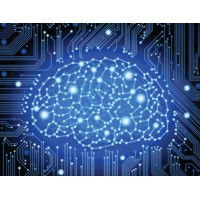AI Developers: Transforming the Future of Technology
Artificial Intelligence (AI) has revolutionized the technological landscape, driving advancements in industries ranging from healthcare to finance. At the heart of these innovations are AI developers, professionals who design and implement intelligent systems to solve real-world problems. Their expertise is reshaping the way we live, work, and interact with technology.
What Are AI Developers?
AI developers are specialized software engineers who focus on creating algorithms and systems capable of mimicking human intelligence. They work with technologies like machine learning (ML), natural language processing (NLP), and computer vision to develop applications that learn, reason, and adapt. These professionals play a pivotal role in building tools that power virtual assistants, recommendation systems, autonomous vehicles, and more.
Key Skills of AI Developers
To excel in this dynamic field, AI developers must possess a combination of technical expertise and problem-solving abilities. Here are the core skills required:
- Programming Proficiency: Expertise in languages such as Python, Java, C++, and R is essential for implementing AI algorithms.
- Mathematics and Statistics: A strong foundation in linear algebra, calculus, probability, and statistics is crucial for developing ML models.
- Data Handling: Knowledge of data preprocessing, cleaning, and visualization tools enables developers to work effectively with large datasets.
- Machine Learning Frameworks: Familiarity with TensorFlow, PyTorch, and scikit-learn is vital for building scalable AI models.
- Domain Knowledge: Understanding the specific industry or application domain enhances the relevance and effectiveness of AI solutions.
The Role of AI Developers in Industry
AI developers are integral to various sectors, leveraging their skills to address unique challenges and unlock new opportunities. Below are some key areas where their contributions are most impactful:
Healthcare
In healthcare, AI developers create systems for predictive analytics, personalized medicine, and disease diagnosis. For example, ML algorithms analyze medical images to detect conditions like cancer at early stages, while NLP tools process patient records to improve treatment plans.
Finance
AI developers enable financial institutions to enhance fraud detection, optimize trading strategies, and improve customer experiences. By designing predictive models, they help analyze market trends and assess credit risks with greater accuracy.
E-commerce
E-commerce platforms benefit from AI-powered recommendation systems that personalize user experiences. AI developers build these systems using collaborative filtering and deep learning techniques to suggest products based on user behavior.
Transportation
The automotive industry relies on AI developers to advance autonomous vehicle technologies. By integrating computer vision and sensor fusion algorithms, they enable vehicles to navigate complex environments safely.
Entertainment
AI-driven content recommendation engines, gaming algorithms, and virtual reality applications owe their sophistication to the expertise of AI developers. These innovations ensure engaging and immersive user experiences.
Emerging Trends in AI Development
The field of AI development is constantly evolving, with new trends shaping the industry landscape. Some of the most notable trends include:
Generative AI
Generative AI models, such as GPT-4 and DALL·E, have gained prominence for their ability to create text, images, and even music. AI developers are exploring their potential in creative industries, content generation, and more.
Edge AI
Edge AI involves deploying AI models on devices closer to data sources rather than relying on cloud computing. This approach reduces latency and enhances data privacy, making it ideal for IoT applications.
Explainable AI (XAI)
As AI systems become more complex, there is a growing demand for transparency and accountability. XAI focuses on developing models that provide clear explanations for their decisions, ensuring ethical AI use.
AI Ethics and Fairness
AI developers are increasingly prioritizing fairness, bias mitigation, and ethical considerations. By integrating diverse datasets and rigorous validation methods, they strive to build equitable AI solutions.
How to Become an AI Developer
Becoming an AI developer requires dedication, continuous learning, and practical experience. Here is a step-by-step guide:
- Educational Foundation: Pursue a degree in computer science, data science, or a related field. Specialized AI courses are highly recommended.
- Learn Programming: Master programming languages and tools commonly used in AI development.
- Understand AI Fundamentals: Gain a deep understanding of ML, NLP, and neural networks through online courses, certifications, or advanced degrees.
- Work on Projects: Build a portfolio showcasing your ability to solve real-world problems using AI technologies.
- Stay Updated: Follow industry trends, attend AI conferences, and engage with the developer community to stay ahead.
Challenges Faced by AI Developers
While AI development offers exciting opportunities, it also comes with challenges:
- Data Privacy Concerns: Ensuring compliance with regulations like GDPR while handling sensitive data.
- Resource Constraints: Building and training complex models require substantial computational resources.
- Bias in Data: Mitigating bias in datasets to ensure fair and accurate AI systems.
- Rapid Technological Advances: Keeping up with the fast-paced evolution of AI tools and frameworks.
Conclusion
AI developers are at the forefront of technological innovation, driving transformative changes across industries. Their expertise in crafting intelligent systems is paving the way for a smarter, more connected world. As AI continues to evolve, the role of these professionals will become even more critical in shaping the future of technology.


